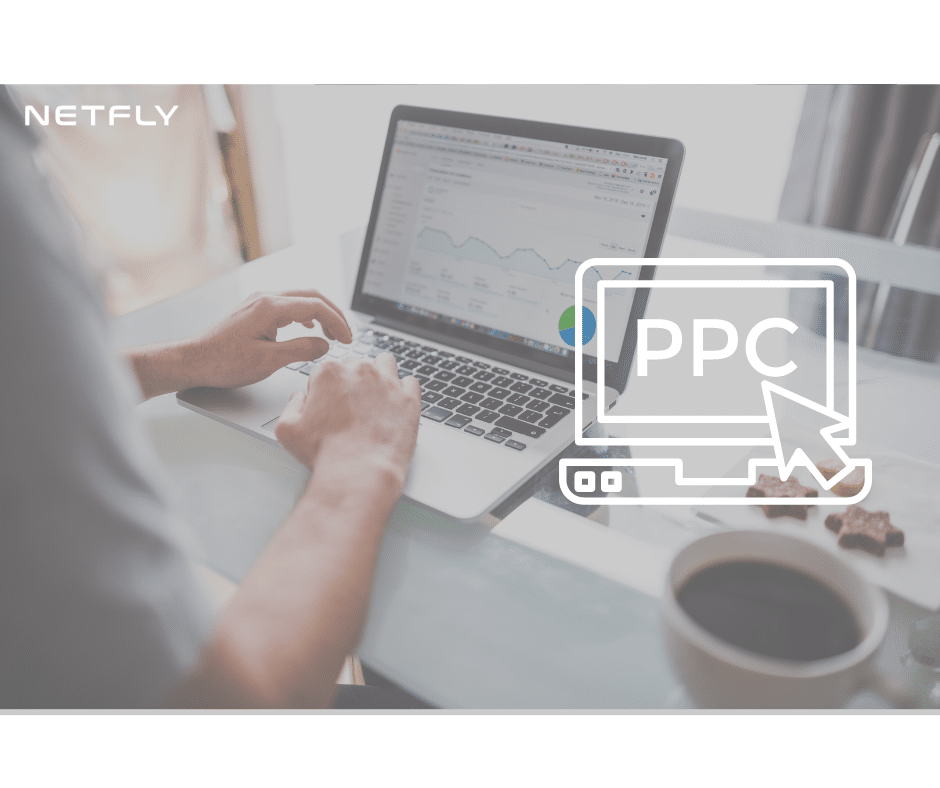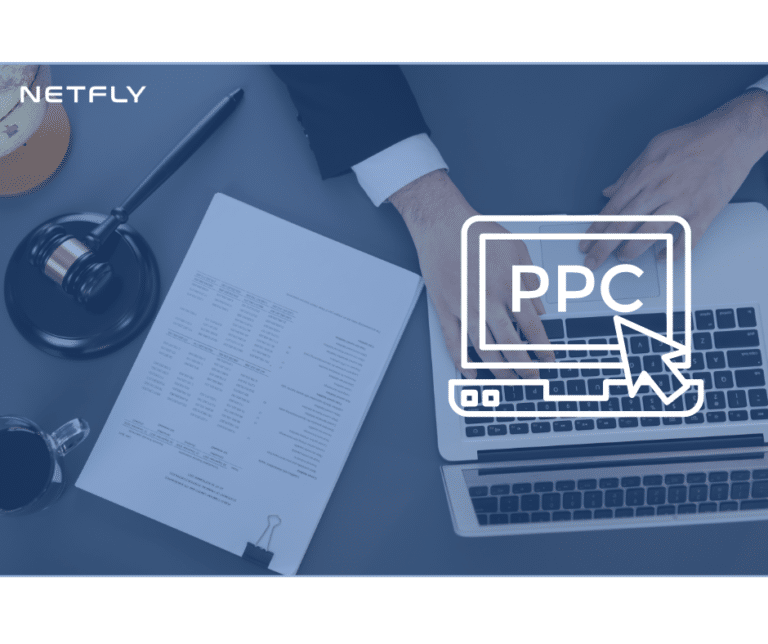If you’re a personal injury attorney looking to boost your client base, PPC advertising might be a game-changer for you. By paying for each click on your online ads, you can target individuals actively searching for legal help. This approach guarantees you reach potential clients quickly and effectively, maximizing your return on investment. But how do you set up a successful PPC campaign and choose the right keywords? Understanding the nuances of this powerful marketing tool is essential to making the most of your advertising budget. Let’s explore how you can leverage PPC to grow your practice.
Key Takeaways
- PPC advertising involves paying for each click on your ad to generate immediate leads for personal injury attorneys.
- Google Ads and Bing Ads are popular PPC platforms used by personal injury lawyers to enhance online visibility.
- Effective keyword research and allocation are crucial for targeting potential clients seeking legal assistance.
- Optimized ad copy and strategic budget management maximize ROI and improve lead quality.
- Regular performance analysis and conversion tracking help refine PPC strategies for better results.
Understanding PPC Advertising
PPC advertising, or Pay-Per-Click, is an essential digital marketing tool where you pay a fee each time someone clicks on your ad, effectively buying visits to your website. This model is particularly powerful for personal injury attorneys aiming to attract targeted leads. To maximize its potential, you need to understand the core components, particularly PPC platforms and bidding strategies.
First, selecting the right PPC platforms is vital. Google Ads and Bing Ads are popular choices, offering extensive reach and customization. These platforms allow you to target specific keywords related to personal injury law, making sure your ads appear in front of an audience actively seeking your services.
Next, let’s talk about bidding strategies. Effective PPC campaigns rely on strategic bidding to optimize costs and maximize visibility. You can choose from various bidding strategies, such as Cost-Per-Click (CPC), Cost-Per-Thousand-Impressions (CPM), or Cost-Per-Acquisition (CPA). By analyzing your campaign performance data, you can adjust your bids to make sure you’re getting the best return on investment.
Understanding PPC advertising requires a strategic approach. By choosing the right PPC platforms and implementing effective bidding strategies, you’ll drive targeted traffic to your site, ultimately increasing your client base.
Benefits for Personal Injury Lawyers
You’ll see immediate lead generation with PPC advertising, allowing you to connect with potential clients right away. It’s a cost-effective marketing strategy, providing a high return on investment by targeting specific keywords relevant to your practice. Plus, you’ll enhance your online visibility, ensuring your firm stands out in a competitive market.
Immediate Lead Generation
Harnessing the power of immediate lead generation, personal injury lawyers can swiftly connect with potential clients in need of their services. By utilizing PPC advertising, you’re not just waiting for clients to find you; you’re actively reaching out to them at the exact moment they’re searching for legal assistance. This proactive approach enhances your chances of attracting quality leads right when they’re most likely to convert.
Effective lead nurturing becomes vital once these leads come in. PPC campaigns allow you to maintain a steady flow of communication, making sure potential clients don’t slip through the cracks. For instance, tailored follow-up emails and retargeting ads keep your services top of mind, guiding prospects through the decision-making process.
Additionally, conversion tracking provides invaluable insights into the effectiveness of your campaigns. With precise data on which ads convert the most leads, you can refine your strategies to maximize ROI. Imagine knowing exactly which keywords or ad placements generate the best results—this data-driven approach ensures you’re getting the most bang for your buck.
Cost-Effective Marketing Strategy
Maximizing your marketing budget through PPC advertising can greatly enhance your firm’s visibility without breaking the bank. Unlike traditional advertising, PPC allows you to allocate your budget precisely, ensuring you only pay when potential clients click on your ad. This level of control makes PPC a cost-effective strategy for personal injury attorneys.
By defining your target audience meticulously, you guarantee that your ads reach individuals actively searching for legal assistance. This targeted approach reduces wasted spend and increases the likelihood of converting clicks into clients. Data shows that businesses make an average of $2 in revenue for every $1 they spend on Google Ads, highlighting the potential ROI for your firm.
Setting clear campaign goals is essential for maximizing efficiency. Whether you aim to increase website traffic, generate leads, or boost brand awareness, PPC campaigns can be tailored to meet these specific objectives. By continuously monitoring and adjusting your campaigns, you can optimize performance and stretch your marketing dollars further.
In short, PPC advertising offers a budget-friendly solution to reach your target audience effectively, align with your campaign goals, and ultimately drive more cases to your firm.
Enhanced Online Visibility
Enhanced online visibility through PPC advertising puts your firm right in front of potential clients actively seeking legal assistance, increasing the likelihood they’ll choose your services over competitors. By leveraging the power of PPC, you can target specific keywords relevant to personal injury cases, guaranteeing that your ads appear when potential clients search for terms like ‘personal injury lawyer near me’ or ‘best accident attorney.’
Combining PPC with local SEO can greatly boost your visibility. Local SEO focuses on optimizing your online presence to attract more business from relevant local searches. Statistics show that 46% of all Google searches are seeking local information, and 78% of local mobile searches result in offline purchases. By targeting local keywords in your PPC campaigns, you make sure that your firm appears prominently in local search results, driving more qualified leads to your website.
Additionally, integrating social media with your PPC strategy can significantly expand your reach. Social media platforms offer advanced targeting options, allowing you to reach specific demographics. By running PPC ads on platforms like Facebook and LinkedIn, you can engage potential clients who may not be actively searching for legal services but could need them. This multi-channel approach maximizes your firm’s online visibility and client acquisition potential.
Setting Up PPC Campaigns
To maximize your PPC campaigns, focus on three key areas: keyword research, budget allocation, and ad copy optimization. Targeting high-intent keywords can increase your click-through rates by up to 20%, while strategic budget allocation guarantees you get the most out of every dollar. Finally, optimizing your ad copy can boost conversion rates by 15%, making your campaigns more effective and efficient.
Keyword Research Essentials
Understanding your audience’s search behavior is crucial for identifying high-impact keywords that will make your PPC campaigns for personal injury attorneys successful. You need to strategically use keyword tools to uncover terms with high search volume and intent. This guarantees you’re targeting the right potential clients who are actively looking for legal assistance.
To effectively set up your PPC campaigns, follow these steps:
- Utilize Keyword Tools: Tools like Google Keyword Planner, SEMrush, and Ahrefs can help you discover relevant keywords. They provide insights into search volume, competition, and cost-per-click estimates.
- Analyze Search Volume: Focus on keywords with substantial search volume but manageable competition. High search volume indicates a significant interest, translating to more potential clients.
- Consider Long-Tail Keywords: These are longer, specific keyword phrases typically with lower search volume but higher conversion rates. They capture users closer to making a decision, like ‘best personal injury attorney in [city].’
Budget Allocation Strategies
Once you’ve identified the right keywords, the next step is to allocate your budget strategically to maximize your PPC campaign’s return on investment. Start by determining your overall budget planning. Review past campaigns to understand what worked and what didn’t. Analyze metrics like Cost Per Click (CPC) and Conversion Rate (CR) to gauge where you should allocate more or less funding.
Implement expense tracking to monitor your spending in real-time. Use tools like Google Ads’ built-in budget tracking to make sure you’re not overspending. Break down your budget into daily or weekly limits to maintain control. Prioritize high-performing keywords but don’t neglect to test new ones. Allocate around 70-80% of your budget to proven keywords and the rest to experimental ones.
Consider using automated bidding strategies to optimize your budget allocation. These tools can adjust bids based on real-time data, helping you get the most out of each dollar spent. Regularly review and adjust your budget based on performance metrics. This ongoing adjustment guarantees you’re not wasting money on underperforming keywords.
Ad Copy Optimization
Effective ad copy optimization in PPC campaigns hinges on crafting compelling, targeted messages that resonate with your audience and drive conversions. To achieve this, focus on incorporating emotional appeal and clear messaging in your ads. Your potential clients are often in distress and seeking immediate help, so your copy should reflect empathy and urgency.
Consider these strategies:
- Leverage Emotional Appeal: Use language that addresses your audience’s pain points and fears, such as ‘Get the justice you deserve’ or ‘We’ll fight for your rights.’
- Maintain Clear Messaging: Guarantee your ad copy is straightforward and free of jargon. Phrases like ‘No win, no fee’ or ‘Free consultation’ clearly communicate your value proposition.
- Utilize Data for Refinement: Analyze performance metrics like click-through rates (CTR) and conversion rates to identify which messages resonate most with your audience. Continually A/B test different ad variations to optimize results.
Keyword Research Strategies
To maximize your PPC campaign’s effectiveness, start by identifying high-intent keywords that potential clients are likely to use when searching for personal injury attorneys. Focus on terms like ‘personal injury lawyer near me,’ ‘best personal injury attorney,’ and ‘free consultation personal injury lawyer.’ These high-intent keywords indicate that the searcher is ready to take action.
Conduct a competitor analysis to see which keywords your competitors are bidding on. Tools like SEMrush or Ahrefs can help you uncover these keywords. By understanding your competitors’ strategies, you can identify gaps and opportunities in your own campaign.
Negative keywords are equally important. They prevent your ads from showing up for irrelevant searches, saving you money and increasing your ad relevance. For instance, if you don’t handle medical malpractice cases, add ‘medical malpractice’ as a negative keyword.
Data shows that using a mix of broad, phrase, and exact match keywords can enhance your campaign’s reach while maintaining precision. Continually monitor and adjust your keywords based on performance metrics like click-through rate (CTR) and conversion rate. This approach guarantees you’re spending your budget efficiently and attracting clients who are ready to hire a personal injury attorney.
Ad Copy Best Practices
After pinpointing the right keywords, crafting compelling ad copy becomes your next strategic move to attract high-intent clients. Your ad copy must not only grab attention but also clearly convey the value you offer. A well-crafted ad can greatly increase your click-through rates and drive more conversions.
To create effective ad copy, consider these best practices:
- Highlight Unique Selling Points (USPs): Clearly state what sets your personal injury law firm apart. Are you offering free consultations, or have a track record of high settlements? Make it known.
- Incorporate Call Extensions: Including a phone number directly in your ad makes it easier for potential clients to reach you immediately. This is especially effective for high-intent searches where users are likely to take immediate action.
- Optimize Ad Scheduling: Use ad scheduling to ensure your ads appear at times when your target audience is most active. Analyzing data to find peak times can maximize your ad’s effectiveness.
Data shows that ads with clear USPs and easy contact options like call extensions outperform others. By strategically scheduling your ads, you enhance they appear when your audience is most likely to engage, boosting your ROI.
Budget Management Tips
Strategically managing your PPC budget guarantees you maximize your ad spend while driving high-quality leads to your personal injury law firm. Start with budget forecasting to predict how much you’ll need to allocate for each campaign. Analyze historical data to understand trends and anticipate costs effectively. For instance, if your average cost-per-click (CPC) has been $5, and you aim for 100 clicks, you should forecast a $500 budget.
Expense tracking is essential to make sure your spending aligns with your forecasts. Use tools like Google Ads’ built-in expense tracking features to monitor your daily and monthly spend. Regularly review these reports to spot any deviations from your forecasted budget. If your CPC suddenly spikes, adjust your keywords or bids accordingly.
Moreover, allocate your budget based on high-performing keywords and campaigns. By continuously analyzing which ads generate the most leads, you can reallocate funds to the best performers, ensuring maximum ROI. Don’t forget to set daily or monthly caps to prevent overspending.
Analyzing PPC Performance
Evaluating your PPC performance starts with meticulously tracking key metrics like click-through rates (CTR), conversion rates, and cost-per-acquisition (CPA). These metrics give you an immediate understanding of how well your ads are drawing potential clients and converting them into leads. You can’t afford to overlook these numbers if you want your PPC campaigns to be effective.
To gain a competitive edge, implement competitor analysis to see how your rivals are performing. This will help you identify gaps in their strategy that you can exploit, making your ads more compelling and cost-effective.
Conversion tracking is another essential tool. It allows you to see exactly which keywords and ads are driving consultations or case sign-ups. This data-driven approach ensures you’re putting your budget where it counts the most.
Consider these strategies for an optimized PPC campaign:
- Regularly monitor your CTR and CPA: This helps you identify which ads are performing and need adjustments or increased investment.
- Use competitor analysis: Understand your competition’s strengths and weaknesses to refine your strategy.
- Implement thorough conversion tracking: Guarantee every dollar spent contributes to measurable outcomes.
Common Mistakes to Avoid
Frequently, personal injury attorneys make the critical mistake of not properly targeting their PPC ads, leading to wasted budgets and missed opportunities. Ad targeting is vital; without it, you risk attracting unqualified clicks. It’s essential to define your audience meticulously. Use data-driven insights to target demographics, behaviors, and search terms that align with potential clients.
Another common mistake is neglecting the quality of your landing pages. Your ad may attract clicks, but if the landing page isn’t optimized, you won’t convert those clicks into leads. Guarantee your landing pages are relevant, fast-loading, and mobile-friendly. Include compelling calls to action and clear, concise information about your services.
Many attorneys also overlook the importance of continuous monitoring and tweaking. PPC is not a set-it-and-forget-it strategy. Regularly review your ad performance metrics and adjust your ad targeting and landing pages accordingly. Utilize A/B testing to determine what works best.
Frequently Asked Questions
How Do I Track Leads Generated From PPC Campaigns?
You can track leads generated from PPC campaigns by using lead tracking tools and analyzing conversion metrics. Implement tracking codes, set up conversion goals, and monitor performance data to optimize your strategy and increase lead quality.
What Platforms Are Best for PPC Advertising in the Legal Industry?
For PPC advertising in the legal industry, use Google Ads and Bing Ads. Google Ads offers broad reach and targeting options, while Bing Ads provides lower competition and cost-per-click, making both strategic choices for maximizing lead generation.
How Do I Ensure My Ads Comply With Legal Advertising Regulations?
It’s no coincidence that ad copy and ethical considerations are vital for compliance. Research guidelines meticulously, consult a legal expert, and regularly review your ads to guarantee they meet all regulations and uphold your firm’s integrity.
What Is the Average Cost per Click for Personal Injury Keywords?
The average cost per click for personal injury keywords can vary widely due to keyword competition. With strategic budget allocation, you can manage costs effectively, typically ranging from $50 to $200 per click in competitive markets.
Can PPC Campaigns Help With Local Search Visibility?
You might think PPC campaigns are costly, but they can greatly enhance your local search visibility. Using local targeting and geo modifiers guarantees your ads reach the right audience, driving more qualified leads to your practice.
Conclusion
So, you’ve navigated the intricate world of PPC advertising for personal injury attorneys. Ironically, while it might seem like rocket science, it’s really just about smart strategies and data-driven decisions. By mastering keyword research, crafting compelling ad copy, and managing your budget, you’ll ironically find that connecting with clients becomes almost effortless. Remember, the key to success isn’t luck; it’s a well-executed PPC campaign that turns clicks into clients. Now, go turn those clicks into wins!










